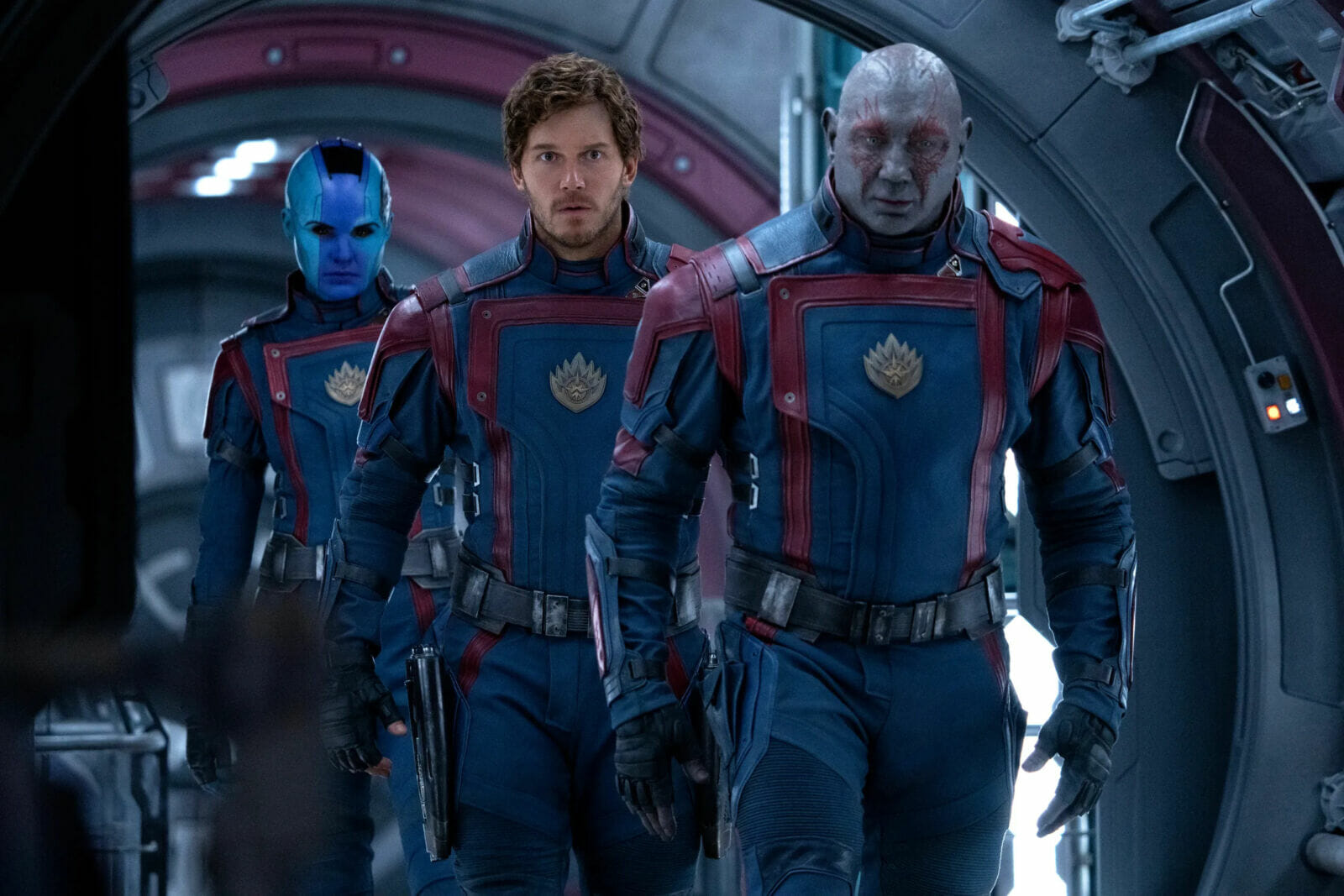Of the myriad reasons for the MCU’s due collapse, perhaps the most deflating on a surface level is that it’s just not telling good stories. Marvel’s insistence on releasing fifty things a year instead of taking a long, hard look at the drawing board has led to disasters like Quantumania, a nothingburger that wastes an entire hour in plotless merry-go-round mode before prostrating itself as a landing pad for the next big villain. The franchise is in desperate need of closer attention. Thank god James Gunn, the writer/director of Guardians of the Galaxy Vol. 3, had nothing else on his mind during.
DEEPER DIVE: Here’s how Arizona film incentives could attract filmmakers
Sarcasm, obviously: the man runs DC Studios now, and he had his hands in at least three other superhero properties during Vol. 3’s production. The film, unsurprisingly, is a little busy. It starts like it’ll move with purpose—a new threat seriously wounds Rocket, time to get help for Rocket, a clear goal from the get-go—but Marvel’s addiction to convolution flares up before long, and soon we’re hobbling between flashbacks and expository monologues as location cards cue up nonsense places and needle drops force tone shifts before the script can catch up. The bloat isn’t all Gunn’s fault, seeing as he’s shouldering the burden of the MCU’s thousand plot beats, but his winking bemusement at the story baggage, often delivered through the mouths of his characters, is just leaden exposition with jokes strewn on top, and even the standalone stuff is structured like a mini-series. It’s a lot.
This is Gunn’s final Guardians of the Galaxy (for now), so each member of the crew gets their own little goodbye arc—some sweet, others thin—but the sort-of central figure is Rocket, whose newly revealed backstory forms the bedrock of the film. He’s in a coma for most of the runtime, though, so flashbacks galore it is. We learn in these pieces between the other moving pieces that Rocket was the brainchild of the High Evolutionary, a mad scientist bent on creating the perfect world (and whose perfect subjects just happen to be anthropomorphized Earth animals, a premise that fits nicely with the movie’s healthy dose of lunacy). Rocket got away, but not without a lifetime’s worth of survivor’s guilt. His story is balkanized across much of the film, but it’s ultimately no more compelling than the side characters’ arcs, partly because it’s congested, partly because it’s formulaic, and partly because it leans on “sad things happening to cute animals” as an emotional shortcut. It’s not a terrific story.
Yet even middling stories can be brought to dizzying, colorful life. Friendship and family aren’t the deepest themes here—as ideas, they’re rarely challenged or framed uniquely; the good guys get it and the bad guys don’t, guess who wins—but Gunn plays with them with heart-on-sleeve zeal. It’s clear that both he and his actors knew where they wanted to take the characters, and watching their performances come full circle is a joy. Bautista’s dramatic material is worthy of the sadness beneath his humor, Saldaña crystallizes her ferocity after previous films toned it down, Pratt approaches the genuine emotional fragility that only Gunn can coax out of him—the broad sweeps of the story are clunky, but the character work tends to land. Same with the jokes: the film favors irony and sight gags over references and quips, and though a decent few bits fall flat, others are “quote it on the walk home and laugh all over again” funny. Everything from Will Poulter, who knows exactly how ridiculous he looks, is pure gold. Vol. 3 just feels happy to be alive.
That energy ensouls the VFX work, which is generally more eye-popping than the average MCU fare. At its best, it feels conducted, the right bright colors for the right weird sights, like rainbow-colored spacesuits crossing a planet made of flesh, or the greens, purples, and fiery reds backlighting spaceships in a dazzling controlled collision. There are rougher edges—the requisite “one-shot” fight scene has been over-polished to fakery—but they’re softened by a willingness to have fun with the camera, each wobbly pan a reminder that this wasn’t just work to make. The frame marshals large-scale chaos without sacrificing personality.
That feels like the whole movie’s goal, really. There’s so much of it, always loud, fast, and unwieldy, but it cares about its characters and slathers it all in heart. I doubt Guardians of the Galaxy Vol. 3 will go down as a great story, but not every great story is this much fun.
★★★ (3/5)




